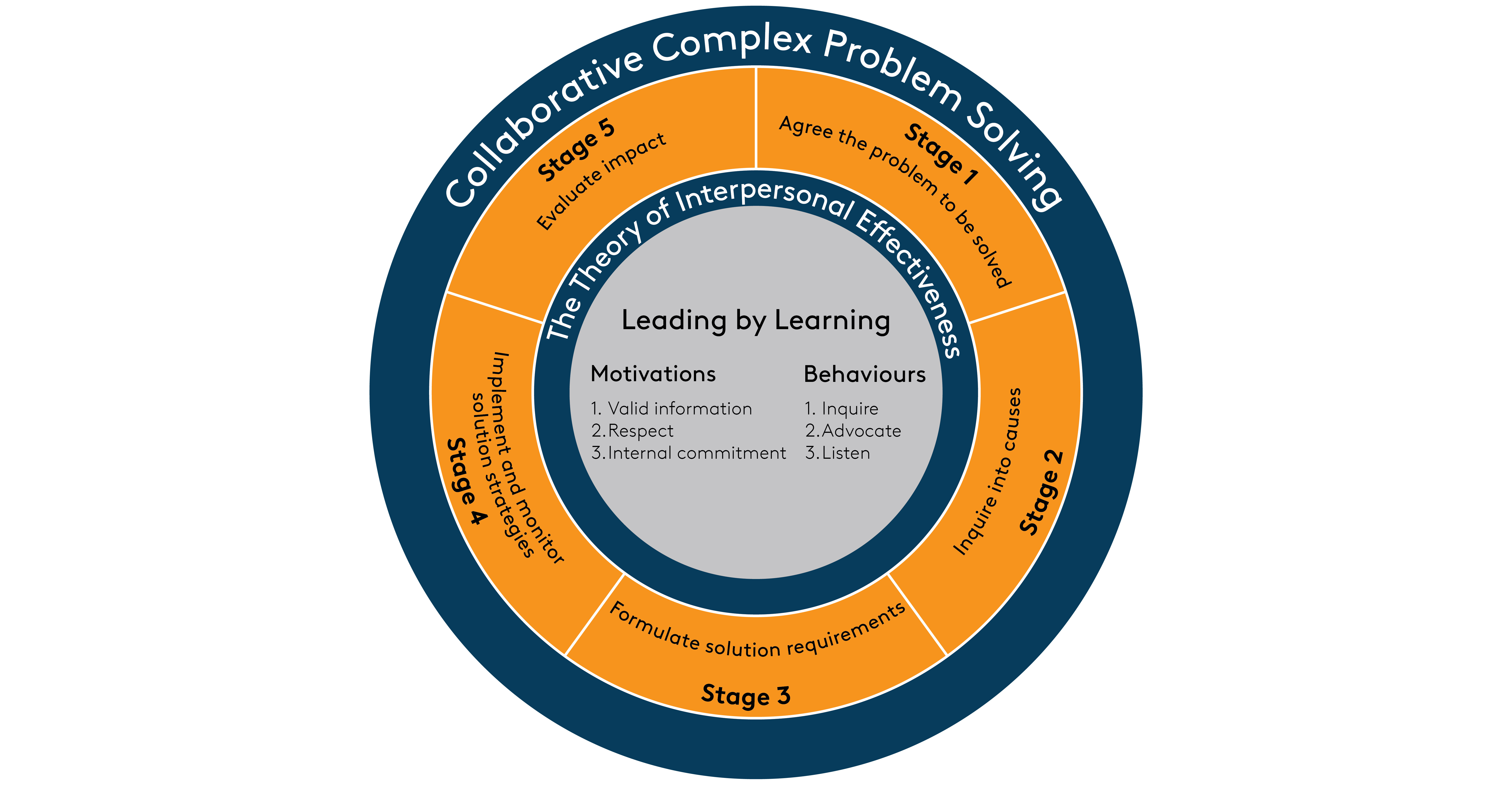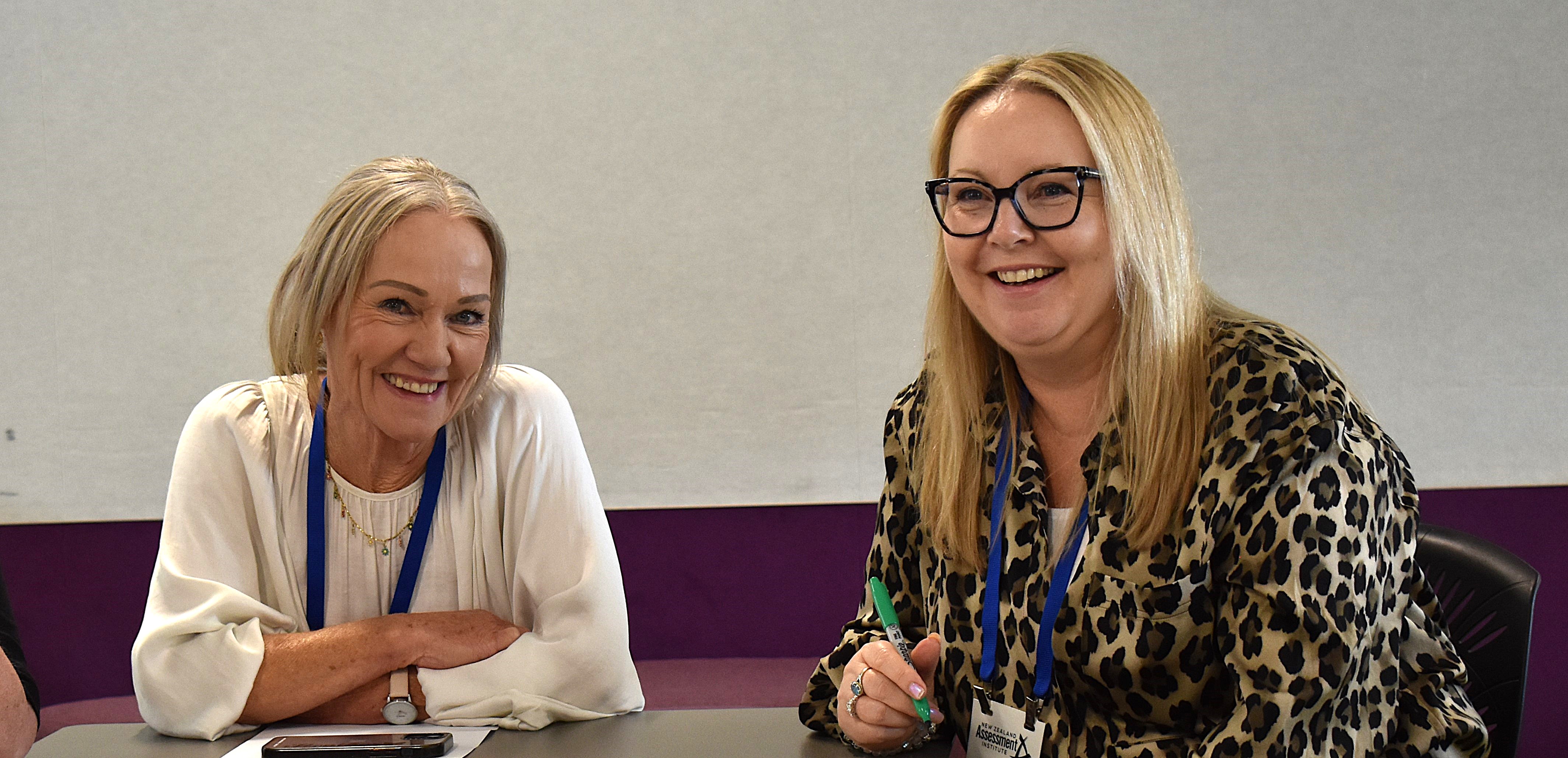Stop fixing, start solving: how Collaborative Complex Problem Solving drives real change
By Ben Laybourn on April 30, 2025 in Leadership
Quick fixes aren’t enough. Learn how Collaborative Complex Problem Solving helps schools tackle real challenges and achieve sustainable improvement.
Quick fixes can feel tempting—but they rarely lead to the lasting impact schools are aiming for.
Too often, improvement plans jump from identifying a problem to rolling out a familiar solution: a new programme, an initiative, or a strategy that seems to fit. Sometimes it works for a few teachers or learners—but widespread, sustained change remains out of reach.
Collaborative Complex Problem Solving (CCPS) offers a different pathway—one that slows the rush to action and strengthens the thinking and collaboration that drive real improvement.
What is Collaborative Complex Problem Solving, and why does it matter?
CCPS is a five-stage, research-based process designed to tackle complex educational challenges—especially those connected to student outcomes. Whether you're working at a classroom, team, or school-wide level, CCPS helps you slow down, dig deeper, and work smarter. It’s not just about achieving better results—it’s about achieving them together.
The five stages of Collaborative Complex Problem Solving
Identify the problem, grounded in student outcome data.
Investigate and test the likely causes—not just assumptions, but what’s really driving the issue.
Define the solution requirements and determine related implementation strategies. How will your solution strategies directly address the problem and its causes?
Implement the strategies and monitor the quality of their implementation. Are the adults consistently making the changes needed to improve student outcomes.
Evaluate impact—have the changes made a difference for the learners you are focusing on.

Collaborative Complex Problem Solving is grounded in a strong research base, drawing from both international and local expertise. It builds on the work of Distinguished Professor Emeritus Viviane Robinson (2023), an internationally recognised authority on educational leadership; Dr Jacqui Patuawa (2023), a leading researcher and practitioner within our team; and Professor Michael Mumford (2000), a global expert on leadership and problem solving. Their research highlights the importance of collective inquiry, trust, and deliberate focus when tackling complex educational challenges. This foundation gives us confidence that CCPS can make a real, measurable difference to student achievement outcomes.
What makes Collaborative Complex Problem Solving different?
CCPS disrupts the cycle of quick fixes. Instead of jumping straight to action, it guides you and your team through a structured process of inquiry and collaboration.
For example, a school using CCPS to improve mathematics outcomes might discover that the real barrier isn’t student ability—it’s teachers’ confidence in teaching mathematics. That changes everything. Suddenly, the focus isn’t just on "more maths time" but on building teachers’ capability and confidence. Two very different solutions—and only one is likely to create lasting improvement.

Collaboration is key
At every stage of the CCPS process, you work with your team — not to them. That’s what makes CCPS powerful. Agreement is built through dialogue. Assumptions are tested against real data. New insights emerge. And perhaps most importantly, trust grows along the way.
Schools using CCPS have reported:
A stronger sense of shared purpose among staff
A shared language and process for improvement
Fresh insights into what’s really going on for students
Greater confidence that their efforts are making a real difference
It’s not just a method—it’s a mindset
CCPS integrates with the Leading by Learning approach—a big part of what makes it so effective. Leaders are supported to have high-trust, respectful conversations, especially when exploring tough issues or challenging long-held beliefs.
Building trust matters. Often, the biggest barrier to solving a problem isn’t a lack of ideas—it’s a lack of trust or a fear of getting it wrong.
When leaders and teachers feel safe to express their thinking, test their assumptions, and learn from each other, real change begins.
Ready to stop spinning and start solving?
Collaborative Complex Problem Solving (CCPS) is more than a framework. It’s a way of thinking, collaborating, and leading that helps you achieve the outcomes you’ve always aimed for — but haven’t quite reached yet.
Want to see CCPS in action?
Explore our Leadership Unlocked programme to learn how you can embed Collaborative Complex Problem Solving in your leadership practice.
Register for our free webinar on Wednesday 7th May to learn more.
The problems may be complex — but with the right tools, you and your team can solve them.
References
Robinson, V. (2023). Virtuous Educational Leadership: Doing the Right Work in the Right Way
Patuawa, J., Sinnema, C., Robinson, V., & Zhu, T. (2023). Professional Development in Education
Mumford, M. et al. (2000). Cognitive and emotional skills in leadership
